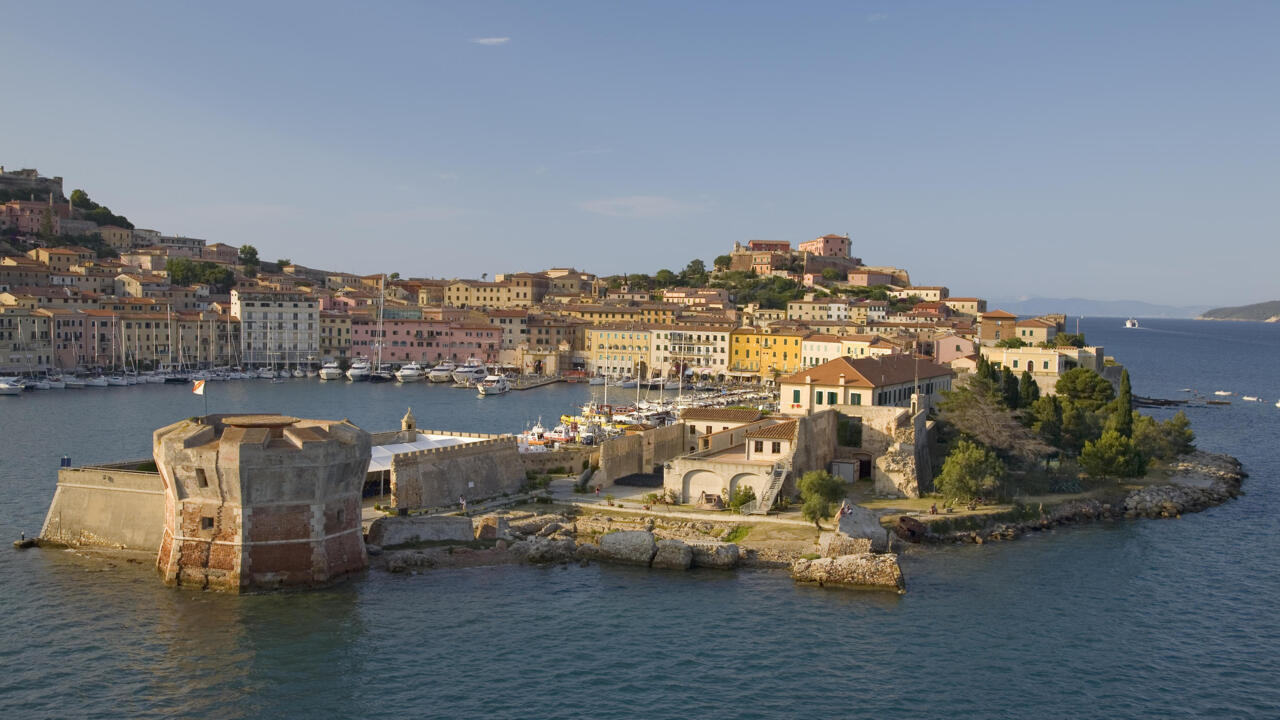On the island of Elba, the shadow of Emperor Napoleon Bonaparte still looms
Audio 02:39
View of Portoferraio, the capital of Elba Island.
Napoleon Bonaparte was ruler of Elba until his flight on February 26, 1815 © Getty Images / Joe Sohm
By: Éric Senanque
7 mins
Defeated by the coalition of Prussians, Russians and Austrians, Napoleon was offered the island of Elba on April 14, 1814 during the Treaty of Fontainebleau.
Arrived three weeks later on the Italian island, located not far from his native Corsica, the fallen emperor will be the sovereign of Elba until his flight on February 26, 1815. His exile in Elba will leave a deep mark that is still very much alive today.
Publicity
From our special correspondent on the island of Elba,
Dominating the waves of the Mediterranean, an eagle's nest watches over Portoferraio, the capital of the island of Elba.
We are at the Villa dei Mulini, one of the two residences
where Napoleon lived
on this island located between Corsica and Tuscany.
A pretty building with yellow walls, built in 1724 and which the fallen emperor had enlarged.
Francesco, the caretaker, opens the property to us.
A few flights later, here we are in the living room, the main room that Bonaparte had built.
The Villa dei Mulini was the perfect home for Napoleon watched very closely by the English.
“
He chose this residence because from here he could see all the ships leaving and arriving.
And there, if you look on the other side, the view dominates Portoferraio.
Maybe he already had the idea of escaping in mind
, ”says Francesco.
► Also to listen: Should we commemorate Napoleon?
The Napoleonic borrowing on the island of Elba
Bonaparte's 300 days of exile in Elba are far from being reduced to this golden prison.
A prolific sovereign, Napoleon indeed reigned over this confetti, transforming it in depth.
Two centuries later, the Elbois have a flag, roads, schools, a Civil Code, flourishing agriculture: so many Napoleonic legacies.
Historian Gloria Peria heads the historical archives of Elba Island.
We find it in the port where it shows us one of the most significant documents of this Napoleonic imprint which began even before the arrival of Bonaparte, in 1802, when the island became a French possession.
“
This document is an act of divorce, it dates from 1806, it is the only act of divorce that I have found in our archives, but it is very significant, because in Italy we will now speak of divorce for almost more than 'a century
,' she explains.
"Napoleon will always live with the people here"
At the other end of the island, in the town of Poggio, flows the “Napoleon spring”, pure water which gushes out from the mountain and where the emperor came to quench his thirst and even find curative virtues.
Today a marble plaque indicates the source where two centuries after the emperor, many Elbois come to fill their bottles like Giuseppe and Cira, come from the neighboring town.
“
This water is wonderful, Napoleon's water is one of the best water in Europe!
Exclaims Giuseppe.
And Cira continues: “
Napoleon is still alive… Even if he is no longer there, he lives and will always live with the people here, in their memory
.
"
► Also to listen: Napoleon is in your nature
If the festivities will be reduced due to the pandemic, the bicentenary of Napoleon's death will nevertheless be celebrated as it should be on the island of Elba.
A solemn mass, where the emperor's death certificate will be read, reconstructions with extras or even guided tours of the Napoleonic sites of the island, hoping for the return of tourists soon.
Newsletter
Receive all international news directly in your mailbox
I subscribe
Follow all the international news by downloading the RFI application
google-play-badge_FR
Italy
France
Napoleon
History

